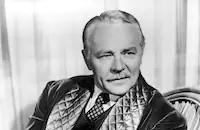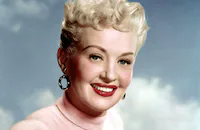Melody Cruise

Brief Synopsis
Cast & Crew
Mark Sandrich
Charles Ruggles
Phil Harris
Helen Mack
Greta Nissen
Chick Chandler
Film Details
Technical Specs

Synopsis
After "wintering" in New York, Pasadena businessman Pete Wells prepares for his ocean voyage home by throwing a wild party in his stateroom. While drunk, Pete signs a letter written by his best friend, playboy Alan Chandler, in which his various adulterous affairs are described in detail. Determined to remain a bachelor, Alan has arranged for the letter to be sent to Pete's wife Grace, but has instructed that it not be opened until he marries. The next morning, after the letter has been mailed and the ship is in mid-ocean, Pete discovers Zoe and Vera, two of his party-goers, stranded in his stateroom. To keep the women safely in his cabin, Pete bribes steward Hickey to steal their clothes. He then hires Hickey to discourage the blossoming romance between Alan and German beauty Elsa Von Rader, fearful that it may lead to marriage and, consequently, the opening of the letter. Soon after, Pete runs into a friend of his wife, Miss Potts, a principal who is traveling with teacher Laurie Marlowe. When Pete and Miss Potts encounter the half-dressed Zoe and Vera on the ship's deck, Pete tells her that the young women are his nieces. While Miss Potts and Pete's "nieces" become acquainted, Alan accidentally waltzes into Laurie's stateroom and begins to romance her. Although attracted to the polished playboy, Laurie dismisses him, and he continues his affair with Elsa until the machinations of Hickey bring him back to Laurie. Now concerned about keeping Alan away from Laurie, Hickey arranges for her to see Elsa entering Alan's cabin. Hurt, Laurie snubs Alan when they dock in Los Angeles, unaware that he had ended his affair with Elsa. Once home with Grace, Pete and Alan try to retrieve the letter, but she insists on keeping it. Alan then tracks down Laurie as she tours northern California and, after explaining about Pete and the letter, proposes to her. Grace, meanwhile, runs into Miss Potts and learns of Pete's "nieces" and Alan's impending marriage. Although Pete believes that he has burnt the letter, Grace, anticipating Pete's conniving, produces it after Laurie and Alan have left for their honeymoon and begins to read it as Pete shrinks in horror next to her.

Director

Mark Sandrich
Cast

Charles Ruggles

Phil Harris
Helen Mack

Greta Nissen
Chick Chandler
June Brewster
Shirley Chambers
Florence Roberts

Marjorie Gateson

Betty Grable
Crew
Louis Brock
Val Burton
Carroll Clark
Merian C. Cooper
Lynn Dunn
Bert Glennon
Dave Gould
James Hartnett
Ben Holmes
Will Jason
Jack Kitchin
John Lockert
Cecil Love
George Marsh
George Marsh
Hugh Mcdowell Jr.
Van Nest Polglase
Allen Rivkin
Mark Sandrich
Murray Spivack
Max Steiner
Clifford Stine
Vern Walker
P. J. Wolfson

Film Details
Technical Specs

Articles
Melody Cruise
The New York Times took notice of this, declaring the picture to be "an adroit mixture of nonsense and music which makes for an excellent summer show... It is, however, not the singing or the clowning that makes this a smart piece of work, but the imaginative direction of Mark Sandrich, who is alert in seizing any opportunity for cinematic stunts... Some extraordinarily clever photography.... Mr. Sandrich also tackles the blending of different sounds."
Making his feature film debut here was future bandleader and radio personality (and future husband to Alice Faye) Phil Harris. The same year, the actor was directed by Sandrich in the hilarious, very pre-Code, Oscar®-winning short So This Is Harris! (1933).
Sandrich had actually cut his teeth directing more than 50 one- and two-reel shorts for RKO in the preceding decade, and from 1930-1933 he also amassed many screenwriting credits. Melody Cruise was the last of these (he shares screenplay credit with Ben Holmes), probably because it was a big commercial hit and firmly established Sandrich as a bona fide feature director. Just one year later he found himself directing Fred Astaire and Ginger Rogers in The Gay Divorcee (1934), followed by Top Hat (1935), Follow the Fleet (1936), and several others in the series.
Sandrich directed Phil Harris twice more in later years, in Man About Town (1939) and Buck Benny Rides Again (1940), both starring Jack Benny and the latter a hugely popular success in which Harris plays himself. Sandrich produced Buck Benny and from thereon produced as well as directed all his remaining pictures. Sadly, there were only six more to go until he died of heart disease in 1945, but they included good ones like Holiday Inn (1942) and So Proudly We Hail! (1943). It's enough to make one wonder what future great films never saw the light of day because of Sandrich's early death.
Melody Cruise stars Charlie Ruggles, a popular and hard-working comic actor who amassed seven credits in 1933 alone. He had recently appeared in great pictures like The Smiling Lieutenant (1931), Love Me Tonight (1932), If I Had a Million (1932) and Trouble in Paradise (1932).
Variety was less enthusiastic than The Times about this movie, calling it "just a well-rehearsed musical trifle... The meat isn't there for the players and they seem to feel it in their work." The trade paper was full of praise for Ruggles, however: "That Ruggles manages to put the stamp of genuineness on a mechanical collection of stage tricks, not a few of them going all the way back to the 'Charley's Aunt' school, is testimony to his expertness.... [Co-star] Helen Mack is very believable... She doesn't sing but looks desirable... Photography and technical production are better than first class."
Look for an uncredited Betty Grable as a stewardess.
Producer: Merian C. Cooper
Director: Mark Sandrich
Screenplay: Ben Holmes, Mark Sandrich (screenplay); Allen Rivkin, P.J. Wolfson (additional dialogue, both uncredited)
Cinematography: Bert Glennon
Music: Max Steiner (uncredited)
Film Editing: Jack Kitchin; John Lockert, George Marsh (both uncredited)
Cast: Charlie Ruggles (Pete Wells), Phil Harris (Alan Chandler), Helen Mack (Laurie Marlowe, Greta Nissen (Elsa Von Rader), Chick Chandler (Hickey - the Steward), June Brewster (Zoe), Shirley Chambers (Vera), Florence Roberts (Miss Potts), Marjorie Gateson (Mrs. Grace Wells)
BW-77m.
by Jeremy Arnold

Melody Cruise
Quotes
Trivia
Notes
The working titles of this film were Maiden Voyage and Maiden Cruise. Melody Cruise was the first sound feature film directed by Mark Sandrich. According to modern sources, producer Brock convinced his studio superiors to hire Sandrich, who had directed an Academy Award winning RKO 1932 short, "So This Is Harris," and had assisted on RKO's 1932 feature, Hold 'Em Jail, for this production. The New York Times review commented extensively on Sandrich's imaginative direction, praising in particular his use of "cinematic stunts" and his "blending of different sounds." One such "stunt," for instance, takes place during the final scene in which "Grace" reads the damning letter. As she starts to read, the image of "Pete" actually shrinks proportionally until he is a speck sitting next to his wife. Reviewers also touted the ballet sequence, which was staged on ice. Brock, who had been head of the short film department, made his feature film debut with this production. Variety noted that this film marked vaudeville performer Chick Chandler's "first real screen debut." Prior to Melody Cruise, Chandler appeared in a 1925 silent film, Red Love. RKO borrowed Charlie Ruggles from Paramount. According to a March Film Daily news item, Nelson Eddy gave up the lead in the film to resume a concert tour. Wera Engels was announced in early February 1933 as the female lead, but apparently was dissatisfied with the part and left RKO in late March 1933, according to Film Daily. Modern sources state that Melody Cruise was the first film musical to use its songs to advance its plot. Two earlier musicals, Paramount's 1932 film Love Me Tonight, and United Artists' early 1933 production Hallelujah, I'm a Bum, however, used music in a similar fashion. According to modern sources, Melody Cruise was a surprise financial success for RKO.














